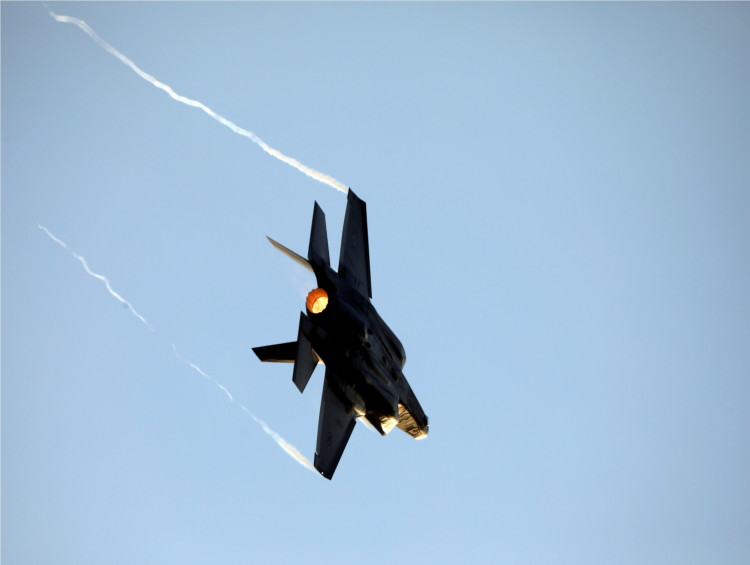The United States military conducted a series of airstrikes Monday evening against ISIS camps in Syria, resulting in the deaths of up to 35 operatives, including several senior leaders, according to an announcement from U.S. Central Command (CENTCOM) on Wednesday. The operation represents an intensification of anti-ISIS efforts in the region as U.S. forces continue their commitment to counterterrorism alongside local partners.
"U.S. Central Command forces conducted a series of strikes against several known ISIS camps in Syria, in the early evening of Oct. 28, resulting in up to 35 ISIS operatives killed," CENTCOM stated in a release on X (formerly Twitter). CENTCOM noted that the strikes targeted multiple ISIS locations in the Syrian desert and highlighted that no civilian casualties were reported.
The strikes mark the latest in a string of recent operations in the Middle East aimed at dismantling ISIS cells and preventing a resurgence of the terrorist group. Although ISIS no longer commands the sweeping territory it once controlled in Iraq and Syria, Pentagon officials affirm that the group remains a persistent threat, with operations now dispersed in various regions globally. "ISIS still remains a threat," Deputy Pentagon Press Secretary Sabrina Singh said earlier this month, clarifying that the group's influence has shifted rather than expanded.
CENTCOM's recent efforts in Syria follow other coordinated actions with Iraqi forces. Last week, U.S. and Iraqi forces collaborated on an operation in Iraq's Anbar province that left seven ISIS operatives dead, while a separate raid in central Iraq resulted in the deaths of multiple ISIS members and injuries to two U.S. service members. The wounded service members were later transported to Walter Reed Medical Center for further treatment.
The recent operations underscore the continued threat ISIS poses in Iraq and Syria, though the group's capacity has been significantly reduced since its peak. CENTCOM emphasized that the Monday strikes are part of ongoing efforts to "aggressively degrade ISIS operational capabilities to ensure its enduring defeat" and that its partnership with allies in the region remains steadfast.
While the footprint of U.S. forces in the Middle East has been minimized over the years, roughly 900 U.S. troops remain stationed in Syria to support counter-ISIS operations, and around 2,500 are in Iraq. These forces, operating in close collaboration with Iraqi Security Forces, have focused on intelligence gathering, strategic raids, and tactical airstrikes to destabilize ISIS strongholds.
As part of these efforts, Iraqi Security Forces have also intensified their operations. In recent weeks, Iraqi forces eliminated four ISIS members, including a high-ranking leader, in an effort to weaken the group's leadership structure. Joint operations between the U.S. and Iraqi forces remain critical, particularly as the U.S. considers future troop presence in the region. The Pentagon announced plans last month to "adjust its footprint" in Iraq by 2025, though specific details on force levels have not yet been disclosed.
The enduring presence of U.S. forces has been the subject of debate both in Washington and in the region. Earlier this year, concerns arose over a potential troop drawdown, but officials stressed that anti-ISIS operations would continue in collaboration with regional partners regardless of future deployments. CENTCOM has reiterated its commitment to providing ongoing support to local forces to ensure that ISIS remains disrupted and unable to regroup.
In addition to operations on the ground, the U.S. is working with Baghdad on a long-term strategy for anti-ISIS efforts. CENTCOM's recent strikes and the collaborative operations with Iraqi forces reflect a multifaceted approach, targeting both leadership networks and operative cells. These targeted actions aim to prevent ISIS from coordinating attacks that could endanger civilians and destabilize the region further.
While ISIS no longer holds territory, U.S. military officials caution that the group's operational networks remain intact. The recent strikes aim to undermine its leadership and planning capabilities significantly. By targeting senior leaders in Syria, CENTCOM hopes to diminish the group's ability to coordinate attacks across borders, potentially affecting its operational capacity on a global scale.






